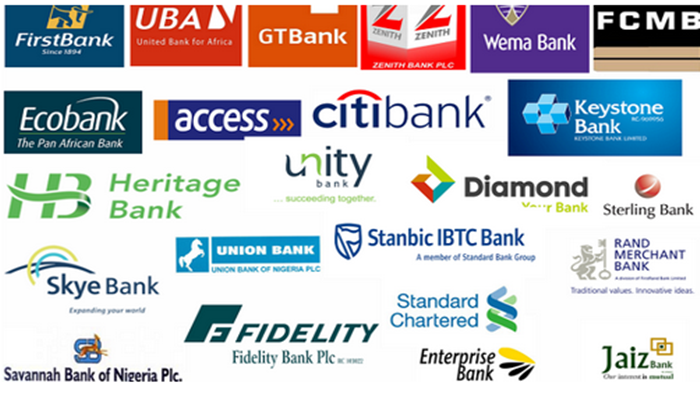
- CBN, NDIC assures they are healthy
A report has said that some banks in Nigeria may have been experiencing a “full-blown financial crisis” due to a cash crunch arising from “failed fiscal and monetary policies”. The Arqaam Capital report published by Bloomberg on Monday said this.
Arqaam Capital is a specialist emerging markets investment bank bringing regional and international product offerings to the emerging markets. The company, which is based in Dubai, United Arab Emirates, provides in-depth research on more than 280 listed Middle East and Africa (MEA) companies across 26 countries and 15 sectors, including the largest global coverage of Middle East and North Africa (MENA) equities.
According to findings, its primary role is to provide financial intermediation and create investment opportunities for emerging markets investors looking to invest in their own markets and abroad as well as international investors seeking opportunities in target emerging markets.
Jaap Meijer and Tarek Sleiman, analysts at the Dubai-based investment bank and brokerage, told Bloomberg that two lenders in Nigeria were close to being insolvent and that two would need a dilutive capital hike.
The report said capital ratios were set to worsen because of currency depreciation and soaring loans and that Nigerian banks were grappling with devaluation of the naira, rising bad loans and an oil-dependent economy that’s set to record its first annual contraction in more than two decades.
The report further says: “Our acid test reveals seven under-capitalised banks” with a deficit of as much as N1 trillion ($3.2 billion) in the financial system, Meijer and Sleiman said. A stress test identified one of the tier-1 banks as the most under-capitalised lender while others were showing deficits if they were to fully provide for non-performing loans, according to Arqaam.
Moody’s Investors Service also said that Nigeria’s five biggest banks shared common credit challenges related to the economic slowdown. Moody’s expects non-performing loans to increase to about 12 per cent over the next 12 months. The ratio of non-performing loans to total credit rose to 11.7 per cent at the end of June from 5.3 per cent at the end of 2015. The CBN requires banks to keep the measure below five per cent.
The five largest lenders, which together hold 57 per cent of the country’s banking assets, “are able to absorb all losses under our severe stress scenario,” Moody’s said.
It listed Guaranty Trust Bank Plc as showing “the greatest resilience”. The other four largest lenders are: Zenith Bank Plc; Access Bank Plc; United Bank for Africa Plc and First Bank of Nigeria Ltd.
CBN Spokesman Mr.Isaac Okorafor had last month cautioned against “rumours”. He said “No bank in the industry is in distress. Therefore, the CBN would like to request the general public to ignore speculations or rumours to the contrary as they could only be the handiwork of mischief makers who do not mean well for the Nigerian banking system and its economy”.
He further said that as the regulator of the industry, the CBN reassured the banking and general public that their deposits remained safe in any Nigerian bank and that there was, therefore, no need for panic withdrawals from any bank.
He said by both the CBN’s examination reports and analysis from market watchers, International Credit Rating Agencies and Development Finance Institutions, the industry remained strong in spite of the global economic challenges emanating from the collapse of global commodity prices.
“We therefore urge the banking public to remain calm and go about their normal businesses without panic. It is important that we do not create problems when none exists,” he said.
Also, earlier this month, the Nigeria Deposit Insurance Corporation (NDIC) reassured Nigerians that the Deposit Money Banks (DMBs) in the country are healthy despite recession. Managing Director of NDIC, Alhaji Umaru Ibrahim who stressed this added that 90 per cent of depositors are covered by the corporation with the deposit insured limit pegged at N500,000.
He gave the assurance while speaking at the NDIC Special Day at the ongoing Abuja International Trade Fair and lamented that despite repeated warning, some Nigerians still fall prey to fraudsters.
He used the opportunity to warn members of the public to be mindful of dubious fund managers who lure their victims with irresistible, but fraudulent and unsustainable interest on deposits.
According to him, “Members of the public are, therefore, advised to patronise only banking institutions be it DMBs, PMBs, MMOs and MFBs with a display of the NDIC stickers carrying the words: ‘Insured by NDIC’ in their banking halls or entrances and various branches across the country. “Without any doubt, these wonder banks or illegal fund managers are neither licensed by the Central Bank of Nigeria nor are they under the NDIC deposit insurance scheme,” he said.







Comments are closed.